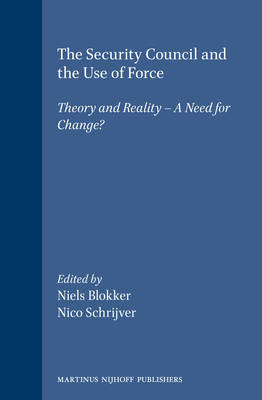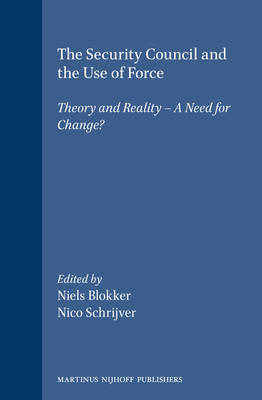
- Afhalen na 1 uur in een winkel met voorraad
- Gratis thuislevering in België vanaf € 30
- Ruim aanbod met 7 miljoen producten
- Afhalen na 1 uur in een winkel met voorraad
- Gratis thuislevering in België vanaf € 30
- Ruim aanbod met 7 miljoen producten
Zoeken
The Security Council and the Use of Force
Theory and Reality - A Need for Change?
€ 114,68
+ 229 punten
Omschrijving
This book addresses the authority of the UN Security Council to regulate the use of force. In particular, it examines the question of whether the present composition, functions, and powers of the Security Council are adequate to meet recent demands, such as the need perceived by states to use force in cases of humanitarian emergency and pre-emptive action in response to international terrorism and the proliferation of weapons of mass destruction. Is the Security Council still well positioned today to deal with these demands and challenges? In seeking a response, the book analyzes both Charter law and Security Council practice. It addresses not only the hotly debated recent crises concerning Kosovo, Afghanistan, and Iraq, but also resolutions dealing with the use of force by peacekeeping operations. A number of issues relating to the right of self-defence are analyzed, as are the emerging new roles of NATO and the African Union. Separate chapters of the book are devoted to the current discussion concerning the reform of the Security Council. A particular feature of the book is the interaction between academics and practitioners as well as between theory and reality.
Specificaties
Betrokkenen
- Uitgeverij:
Inhoud
- Aantal bladzijden:
- 332
- Taal:
- Engels
- Reeks:
- Reeksnummer:
- nr. 44
Eigenschappen
- Productcode (EAN):
- 9789004146426
- Verschijningsdatum:
- 12/10/2005
- Uitvoering:
- Hardcover
- Formaat:
- Genaaid
- Afmetingen:
- 167 mm x 243 mm
- Gewicht:
- 743 g

Alleen bij Standaard Boekhandel
+ 229 punten op je klantenkaart van Standaard Boekhandel
Beoordelingen
We publiceren alleen reviews die voldoen aan de voorwaarden voor reviews. Bekijk onze voorwaarden voor reviews.










